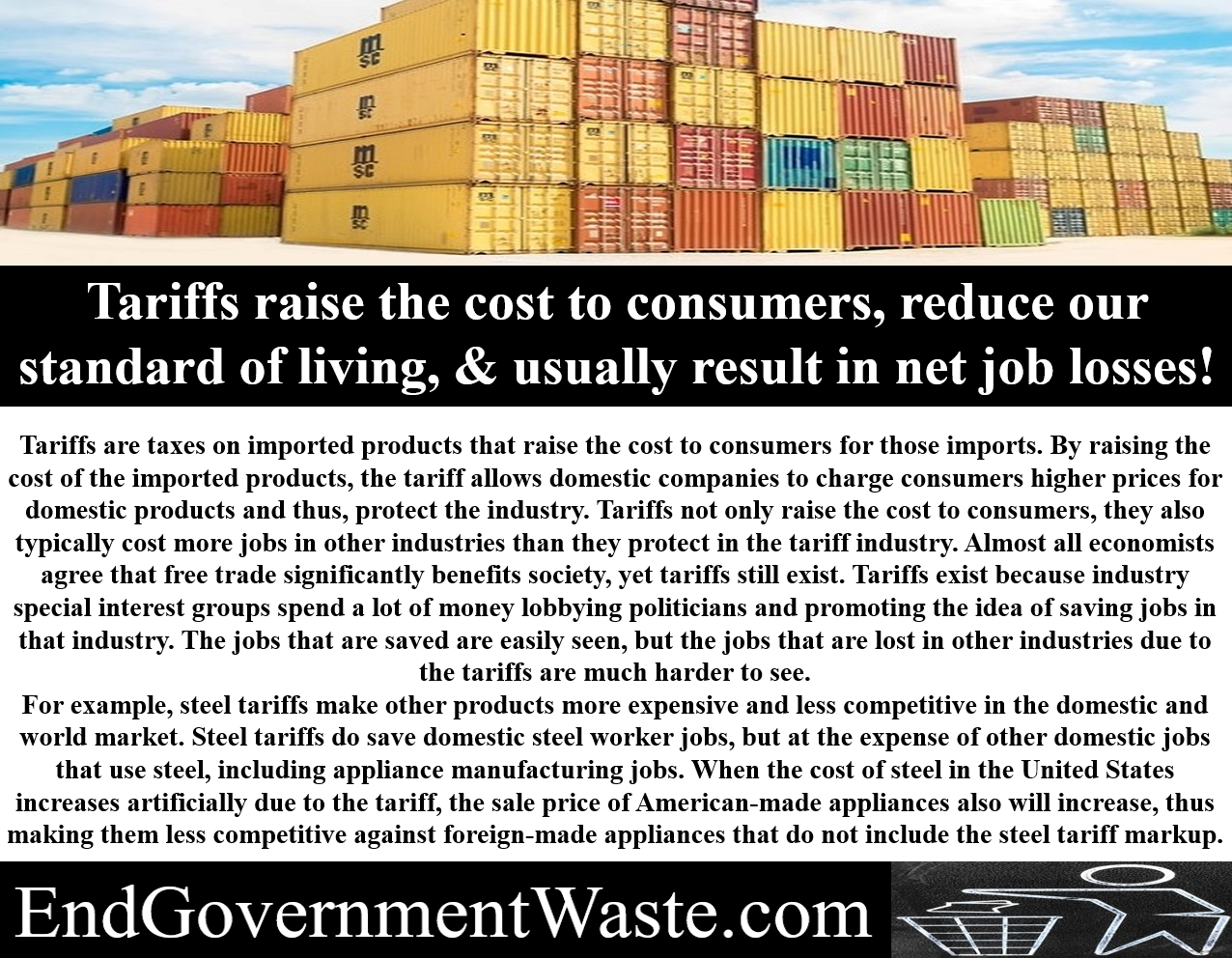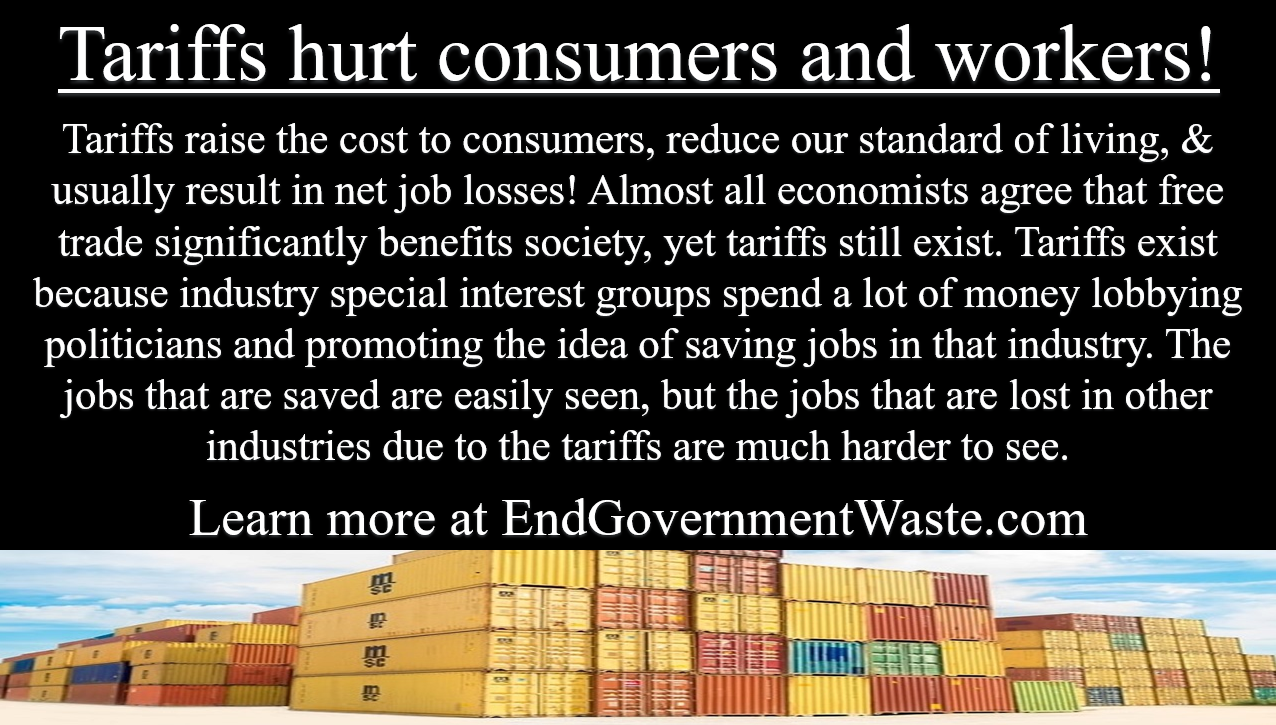

Tariffs raise the cost to consumers, reduce our standard of living, & usually result in net job losses!
Tariffs are taxes on imported products that raise the cost to consumers for those imports. By raising the cost of the imported products, the tariff allows domestic companies to charge consumers higher prices for domestic products and thus, protect the industry. Tariffs not only raise the cost to consumers, they also typically cost more jobs in other industries than they protect in the tariff industry. Simply put, the tariff essentially reduces competition at the expense of the consumer and decreases society’s standard of living.
Almost all economists agree that free trade benefits everyone, yet tariffs still exist. Tariffs exist because industry special interest groups spend a lot of money lobbying politicians and promoting the idea of saving jobs in that industry. The jobs that are saved are easily seen, but the jobs that are lost in other industries due to the tariffs are much harder to see.
For example, steel tariffs make other products more expensive and less competitive in the domestic and world market. Steel tariffs do save domestic steel worker jobs, but at the expense of other domestic jobs that use steel, including appliance manufacturing jobs. When the cost of steel in the United States increases artificially due to the tariff, the sale price of United States-made appliances also will increase, thus making them less competitive against foreign-made appliances that do not include the steel tariff markup.
The sugar tariff is another excellent example of how our resources are being wasted by tariffs. Sugar is much cheaper to grow in Brazil than in the United States, but the American sugar special interest lobby has been able to promote tariffs that result in American consumers often paying double the world market price for sugar.
Another strong example is the American automobile making market. American auto makers and the United Autoworkers Unions support the 25% tariff on imported pickup trucks and SUV’s, because it benefits the auto maker’s bottom line and the ability of the auto makers to pay their union workers higher compensation. If a light truck made in Europe or Japan would typically sell here for $35,000, it will cost the American consumer $43,750 after the tariff, an additional $8,750. This tariff supports the American auto industry at the expense of the American consumer.
Without tariffs, companies that cannot compete in the free market will go out of business, which will free up the capital and workers needed for industries in which our country is more efficient and effective in producing.
Tariffs should only be used in national security situations, which are very rare. In a national security situation, the government can agree to buy a limited quantity of domestic production which would enable a small domestic industry to exist.
American industry should focus on what it does best, and trade for those products and services that we do not produce as efficiently. Propping up inefficient industries and businesses with tariffs increases prices for products and reduces our standard of living.
